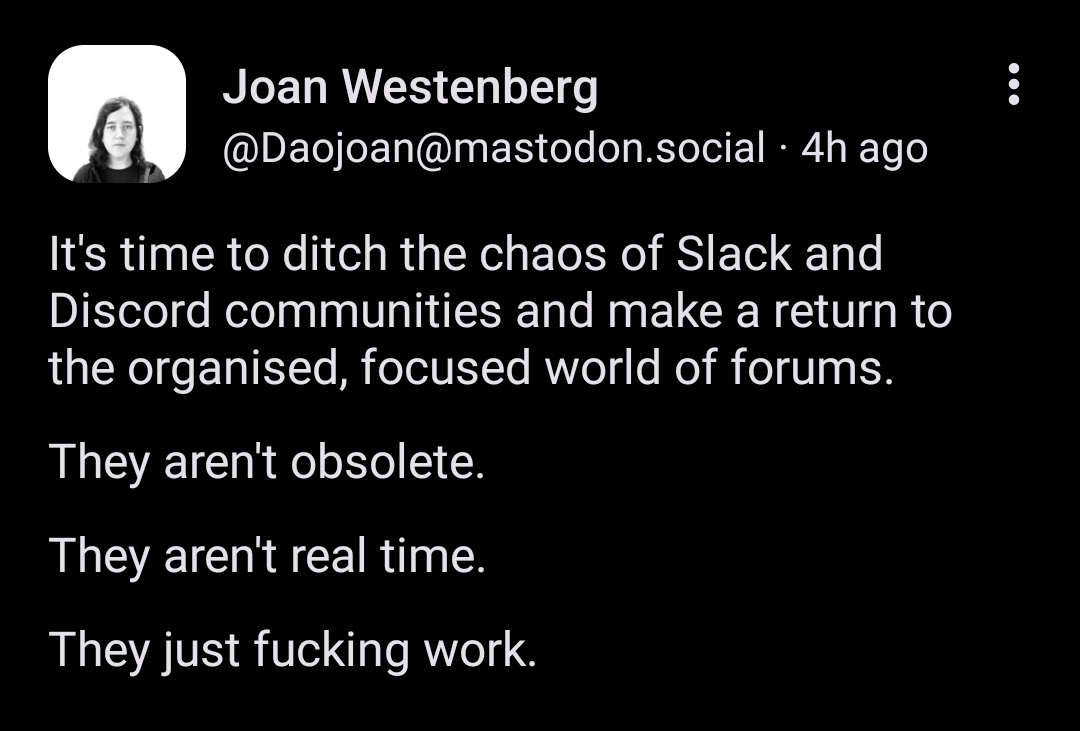this post was submitted on 14 Jan 2024
1068 points (96.8% liked)
People Twitter
8232 readers
1055 users here now
People tweeting stuff. We allow tweets from anyone.
RULES:
- Mark NSFW content.
- No doxxing people.
- Must be a pic of the tweet or similar. No direct links to the tweet.
- No bullying or international politcs
- Be excellent to each other.
- Provide an archived link to the tweet (or similar) being shown if it's a major figure or a politician. Archive.is the best way.
founded 2 years ago
MODERATORS
you are viewing a single comment's thread
view the rest of the comments
view the rest of the comments

I offer a less patronizing explanation:
Social interaction requires other people to interact with. A platform with more people can provide more social interaction. The average person does not make the choice to use larger platforms because they are uninformed or affected by peer pressure. They make that choice because the thing they value most in social media is a large userbase.
The average person does not claim to want something more out of social media. They don't care what advantages or disadvantages a platform has.
There are of course people who claim to care about these things and still continue to use more popular and worse platforms, but they are far less common than you seem to think. Also the fact they aren't changing their behavior doesn't mean they don't actually care, it just means they care more about other things.
What you have said is true, but does not make what I said false.
Maybe this is just my way of speaking, but if you say you care about something, or want some feature, and you are presented with it, and then... now it also needs to be something else, or something specific other thing that has that something else...
Then you did not /actually/ want the thing you said you wanted.
Yes, in that case, you are correct that this person wanted something /more/ than something else.
Look I think the easiest way to explain this is that if you take say large and thorough political polls of Americans, it is so very obvious and easy to see with the data that an astounding amount of people hold positions that are obviously logically contradictory to hold at the same time, that this is why /decades/ ago political campaigns have been focusing on key words and phrases that sound nice over non ambiguous and concrete policy positions, which generally are less popular than using certain phrases.
There are tons of people who think they care about something and will say they care about it a lot, but when push comes to shove, they will do something, engage in some behavior that evidences they dont /actually/ care about it when push comes to shove. That they will then qualify their position and start rationalizing extra conditions that make them for some reason exempt in this specific case.
I dunno, perhaps I am ranting pointlessly, but to me it seems utterly uncontroversial to say many people are hypocrites to some degree, or have inconsistent wants or beliefs, to me that seems pretty well evidenced by the entire field of psychology.